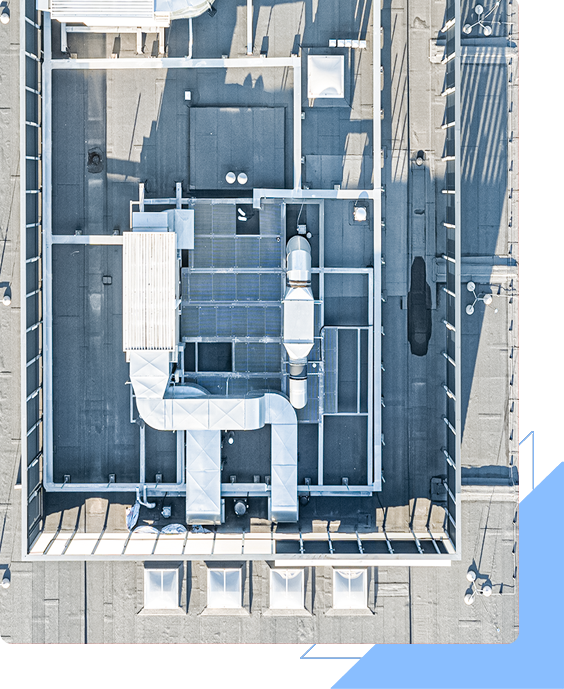Are There Any Specific Permits Or Licenses Required For Roofing Installation Or Repair?
by siteadmin

Are There Any Specific Permits Or Licenses Required For Roofing Installation Or Repair?
Roofing installation and repair are essential aspects of maintaining a safe and functional home or building. However, before embarking on any roofing project, it is crucial to understand the legal requirements and regulations that govern the process.
One of the most critical aspects of roofing installation and repair is obtaining the necessary permits and licenses. Failure to comply with these requirements can result in legal penalties, fines, and even project shutdowns.
Permits and licenses are essential because they ensure thatroofing orlando projects are carried out safely and in compliance with local building codes and regulations. These requirements also help to protect homeowners and building occupants from potential hazards that may arise from substandard roofing work.
In this article, we will explore the specific permits and licenses required for roofing installation and repair, how to obtain them, and the safety regulations and best practices that must be followed to ensure a successful roofing project.
Key Takeaways
– Roofing installation and repair require permits and licenses to comply with local building codes and safety regulations.
– Specific permit and license requirements for roofing installation and repair vary depending on the location of the property and may include licenses for contractors performing the work.
– Failure to obtain necessary permits and licenses can result in legal penalties, fines, and project shutdowns.
– Benefits of obtaining permits and licenses include ensuring that work is legal, safe, and of high quality, and demonstrating compliance with safety regulations and building codes.
Understand the Importance of Permits and Licenses
The acquisition of requisite permits and licenses is critical in ensuring compliance with local regulations and standards, thereby promoting safety and quality in roofing installation and repair. These permits and licenses are issued by local government agencies and are designed to ensure that roofing contractors and their work comply with building codes and safety regulations.
Failure to obtain the necessary permits and licenses can result in penalties, fines, and even the suspension of a roofing contractor's business license. To avoid these negative consequences, it is important to determine the permit and license requirements in your area.
This involves researching the local regulations and codes that govern roofing installation and repair, as well as the specific permits and licenses required for this type of work. By obtaining the appropriate permits and licenses, roofing contractors can ensure that their work is legal, safe, and of high quality.
Determine the Permit and License Requirements in Your Area
To ensure compliance with local regulations, it is important to research the necessary authorizations for conducting work on a roof. The specific permits and licenses required for roofing installation or repair typically vary depending on the location of the property.
It is important to check with the local building department to determine the specific requirements for the area in which the work will be performed. In general, permits are required for any construction or alteration work that affects the structural integrity of a building. This includes roofing installation or repair work.
Licenses may also be required for contractors performing the work. It is important to understand the necessary permits and licenses in advance to avoid potential fines or delays in the roofing project. Once the requirements have been determined, the next step is to apply for necessary permits and licenses.
Apply for Necessary Permits and Licenses
Applying for the necessary authorizations to perform roofing work is a crucial step in ensuring compliance with local regulations and avoiding potential fines or delays. The process of obtaining permits and licenses can vary depending on the location, type of roofing work, and the governing authorities.
The first step is to research the applicable requirements and regulations in the area where the work will take place. This can be done through contacting the local building department or consulting online resources.
Once the necessary permits and licenses have been identified, the next step is to complete the application process. This typically involves submitting an application, paying any associated fees, and providing documentation such as proof of insurance, contractor licenses, and building plans.
It is important to ensure that all required information and documentation is provided accurately and in a timely manner to avoid any delays in the application process. Once the permits and licenses have been obtained and the work has begun, it is important to follow safety regulations and best practices to mitigate any potential risks or accidents.
Follow Safety Regulations and Best Practices
Following safety regulations and best practices is essential to prevent injuries and fatalities in the roofing industry, where falls account for 79% of worker fatalities. Roofing contractors must comply with safety regulations set by Occupational Safety and Health Administration (OSHA) to ensure the safety of their employees and the general public.
Here are some of the safety regulations and best practices that roofing contractors need to follow:
– Provide proper fall protection equipment to their employees, such as safety harnesses and guardrails.
– Train their employees on how to properly use the fall protection equipment and work safely on roofs.
– Conduct regular safety meetings to review safety procedures and identify any potential hazards.
By following these safety regulations and best practices, roofing contractors can prevent accidents and injuries in the workplace, and protect their employees and the general public from harm.
In addition to following safety regulations, roofing contractors must also keep records and obtain final inspections to ensure that their work meets the requirements of local building codes and regulations.
Keep Records and Obtain Final Inspections
Keeping records and obtaining final inspections is an important aspect of ensuring that roofing contractors comply with local building codes and regulations. By keeping accurate records, contractors can demonstrate their compliance with safety regulations, best practices and local building codes. These records can also be used as a reference for future repairs or inspections. Additionally, obtaining final inspections is a crucial step in the roofing installation or repair process. Final inspections are conducted by local building inspectors to ensure that the roofing work has been completed in accordance with the local building codes and regulations. This inspection is typically scheduled by the roofing contractor, and failure to pass the inspection can result in fines, penalties, and even legal action.
To further illustrate the importance of keeping records and obtaining final inspections, the following table highlights some of the key benefits and requirements associated with these practices:
| Benefits | Requirements |
| — | — |
| Demonstrates compliance with safety regulations and building codes | Maintain accurate records of work performed |
| Provides a reference for future repairs or inspections | Schedule and pass final inspection with local building inspector |
| Helps avoid fines, penalties, and legal action | Ensure that all work is completed in accordance with local building codes and regulations |
Overall, keeping records and obtaining final inspections are critical aspects of the roofing installation or repair process. By following these requirements, contractors can ensure that their work is performed safely, legally, and in accordance with local building codes and regulations.
Frequently Asked Questions
How much does it cost to obtain a roofing permit or license?
The cost of obtaining a roofing permit or license varies depending on the location and the type of permit or license required. It is best to consult with local authorities or a licensed roofing contractor for specific information.
Can a homeowner obtain a roofing permit or license or does it have to be done by a professional?
While it is possible for a homeowner to obtain a roofing permit or license, it is typically recommended to have a professional handle the process. This ensures that all necessary regulations and safety standards are met during installation or repair.
How long does it typically take to obtain a roofing permit or license?
The duration of obtaining a roofing permit or license may vary depending on the state or local regulations. It is recommended to check with the relevant authorities for specific requirements and processing times.
Are there any exemptions or exceptions to the permit and license requirements for roofing installation or repair?
Exemptions or exceptions to permit and license requirements for roofing installation or repair may vary depending on local regulations. However, it is important to note that compliance with building codes and safety standards is crucial for any roofing project.
What happens if a roofing contractor does not have the necessary permits or licenses?
When a roofing contractor lacks the necessary permits or licenses, they may face legal consequences such as fines or suspension of business operations. It is important to comply with regulations to ensure safety and quality in roofing projects. As the saying goes, "better safe than sorry."
Conclusion
In conclusion, obtaining the necessary permits and licenses for roofing installation or repair is crucial in ensuring safety and compliance with regulations. Failure to do so may result in legal consequences and pose a risk to the public.
It is important to research and understand the specific requirements in your area and follow the proper procedures for obtaining permits and licenses. Additionally, adhering to safety regulations and best practices throughout the installation or repair process can further mitigate potential risks.
In essence, obtaining permits and licenses and adhering to regulations is like building a sturdy roof- it requires a solid foundation and careful attention to detail to ensure safety and longevity.
Gravity Roofing
14 S Bumby Ave, Orlando, FL, United States, 32803
407-461-0234
Are There Any Specific Permits Or Licenses Required For Roofing Installation Or Repair? Roofing installation and repair are essential aspects of maintaining a safe and functional home or building. However, before embarking on any roofing project, it is crucial to understand the legal requirements and regulations that govern the process. One of the most critical…
Recent Posts
- New Orleans Concreters Advocates for Stamped Concrete Driveways as the Ultimate Choice for Durability and Style
- Gutter Installation Jacksonville FL: Revolutionizing Home Protection
- A. Parker Contracting Emerges as Premier Roofer in Delaware: Serving Newark and Wilmington Areas with Excellence
- The Comprehensive Guide to Gutters in Jacksonville FL
- The Comprehensive Guide to Gutters in Jacksonville FL
